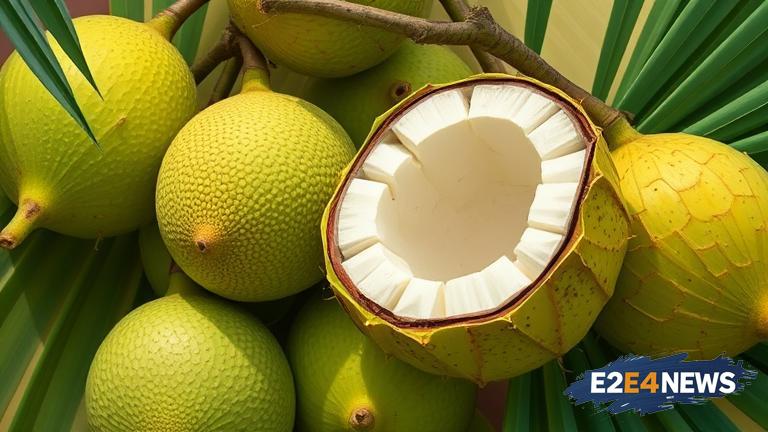China’s imports of fruits have been on the rise, with a notable increase in the demand for durians and coconuts. This surge in demand is largely attributed to the country’s growing middle class, who are seeking out exotic and high-quality produce. The upcoming China International Import Expo (CIIE) is expected to further boost the country’s fruit imports, with many international suppliers looking to capitalize on the growing demand. China’s fruit market has experienced significant growth in recent years, with imports increasing by over 20% in 2022 compared to the previous year. The country’s growing appetite for fruits is driven by changing consumer preferences, with many Chinese consumers seeking out healthier and more diverse food options. Durians, in particular, have become increasingly popular in China, with many consumers willing to pay premium prices for the fruit. Coconuts are also in high demand, with China importing large quantities from countries such as Indonesia and the Philippines. The CIIE, which is scheduled to take place in November, is expected to attract many international fruit suppliers, who will be looking to showcase their products and establish trade relationships with Chinese buyers. The expo will provide a platform for suppliers to connect with Chinese importers, distributors, and retailers, and is expected to further boost the country’s fruit imports. China’s growing demand for fruits is also driven by the country’s e-commerce sector, with many online platforms offering a wide range of fruit products to consumers. The rise of e-commerce has made it easier for consumers to access exotic and high-quality fruits, which has contributed to the growth in demand. In addition to durians and coconuts, China is also importing large quantities of other fruits, such as cherries, blueberries, and avocados. The country’s fruit imports are expected to continue to grow in the coming years, driven by the increasing demand from Chinese consumers. The Chinese government has also implemented policies to support the growth of the country’s fruit industry, including providing subsidies to fruit farmers and investing in cold chain logistics. The growth in China’s fruit imports is also expected to benefit the country’s economy, with the sector providing employment opportunities and generating revenue. However, the growth in fruit imports has also raised concerns about the environmental impact of transportation and the potential for price volatility. Despite these concerns, the demand for fruits in China is expected to continue to grow, driven by the country’s large and growing middle class. The CIIE is expected to play a key role in promoting the growth of China’s fruit industry, by providing a platform for international suppliers to connect with Chinese buyers. The expo will also provide an opportunity for Chinese fruit producers to showcase their products and establish trade relationships with international buyers. Overall, China’s growing appetite for fruits is expected to continue to drive the growth of the country’s fruit industry, with the CIIE playing a key role in promoting the sector. The country’s fruit imports are expected to continue to rise, driven by the increasing demand from Chinese consumers, and the sector is expected to provide significant opportunities for international suppliers and Chinese producers alike.
